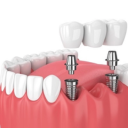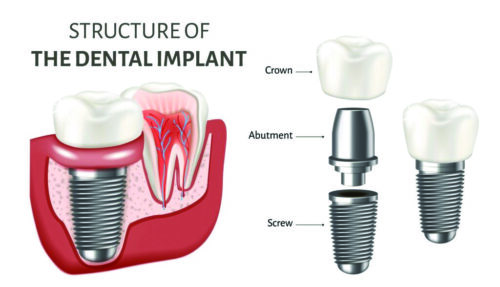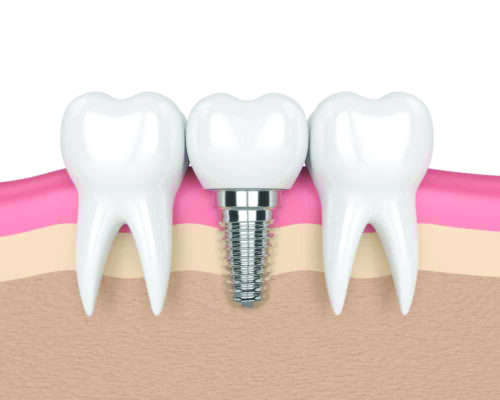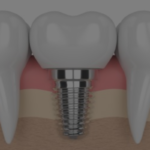
Implant Prosthesis
March 11, 2024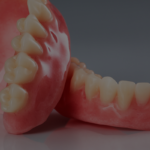
Dentures
March 11, 2024Dental Implants
A dental implant is an artificial tooth root inserted into the jaw surgically to hold a replacement tooth or
bridge in place. Implants feel and look natural, and once the process is complete, they function exactly like
natural teeth. Dental implants have revolutionized modern dentistry. It is considered the best and most
efficient way to create a natural look combined with stability, providing a lifelong and durable alternative
to removable dentures or fixed bridges that don’t fit well and often fail to provide acceptable facial
aesthetics.
Why do I need it?
Your dentist can use dental implants for replacing a single, multiple, or all missing teeth in a jaw, the
goal being to restore dental function and improve your facial appearance. Conventional dentures are
considerably less expensive than dental bridges or implants, but the former is the least desirable due to
their inconvenience and poor esthetics. You can eat with implants just like you would with your own set
of teeth. Dental Implants provide the look and feel of natural teeth, offer a long-term, maintenance-free
solution.
How long will it take?
Implant surgery involves several steps that are undertaken in certain time intervals. Before starting the
therapy, your dentist will perform a comprehensive exam to thoroughly check the health of your oral
cavity (teeth, gums, bone, etc.). This may include X-rays and full mouth 3D scans to confirm that the
health of your gums and jawbone is sufficient to support an implant and formulate your treatment plan.
The next step will be your surgery, where your dentist will place the titanium implant in your jaw bone.
This surgery usually takes about 1-2 hours for each implant being placed. After this step is complete,
most dentists wait about three months before the final restoration of the tooth. You need to allow time
for the implant to fuse into the bone so that it has the strength to support your final restoration. After the
implant is healed, the last step is the fitting of the abutment and crown to the implant. When your gums
heal, the dentist will take dental impressions to fabricate a custom replacement tooth, also called implant prosthesis. This is a non-surgical and straightforward procedure, just like fixing of crown/bridge.
What should the patient do before the treatment?
Your dentist may schedule various investigations like oral examination, X-rays, blood tests, CT scans,
etc., before your implant procedure. You may also be put under an antibiotic course, or your medications
may be altered if you are on certain medicines like blood thinners. If the surgery is planned under general
anesthesia or sedation, you may have to fast a couple of hours before the procedure to make sure you
are on an empty stomach. If the procedure is planned under local anesthesia in an outpatient setting, you
may take a light meal a few hours before the appointment. It is also good to refrain from smoking and
consuming alcohol before and after the procedure, as these can affect the healing process.
What should the patient do after the treatment?
If the procedure was done under sedation, you might feel a little groggy for several hours, so make sure
you have someone to drive you home after the procedure. There may be some soreness, swelling, or minor
pain after the procedure, so you will need to rest for proper healing. You must take a cold, soft, or semisolid
diet for a couple of days and avoid strenuous activities. Your doctor may also prescribe you some
medications to help you with these symptoms. In case of severe pain or bleeding, consult your dentist
immediately.
Dental implants require the same dental hygiene as your natural teeth. To keep them healthy, you must
brush and floss your teeth twice a day and see your dentist regularly. Usually, implants do not cause
tooth decay or cavities. Still, they can be impacted by gum diseases, so practising good oral hygiene is of
paramount importance if you want to keep your implants healthy for a lifetime.






